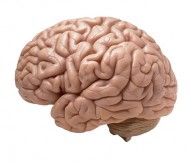
H2020 takes on dementia, hearing and vision loss
A new multi-million euro research project is to tackle the triple challenge of dementia, age-related hearing and vision impairment.
70% of Europeans over the age of 65 live with either sight or hearing problems, and over two thirds experience depression or dementia. Combined, the cumulative impact of these conditions far exceeds the individual impairment, but little is understood about the problem.
The five-year, €6.5m, Horizon 2020 project SENSE-Cog plans to change this. Led by the UK’s University of Manchester, SENSE-Cog aims to define the scale of the challenges so that authorities across the continent can benefit from the optimal allocation of resources.
It also plans to develop online tests, guides and multilingual training manuals to help medical professionals diagnose and treat the combined problems more effectively, as well as trialling an intervention of at-home support for people with dual and triple impairments. This will be supported by specialist sensory therapists based at Central Manchester University Hospitals – NHS Foundation Trust and will focus around pragmatic solutions to support both the affected person and their carer.
Minority groups are particularly disadvantaged with respect to the diagnosis and treatment of mental and sensory problems, so researchers will be specifically seeking people from these groups to participate in the study.
Researchers are hopeful that the project will enhance mental wellbeing and even help tackle neurodegenerative disease.
“Millions of people in the UK and wider EU are affected by this combination of problems, and it’s only going to get more prevalent as the population ages,” says co-lead Dr Piers Dawes, an audiologist at the University of Manchester.
“That’s why we have to understand the scale of the problem and then equip the public, carers and healthcare workers with the tools they need to deal with it. If we could reduce disability due to hearing and vision impairment, there is huge potential to improve mental wellbeing and even delay the deterioration of dementia.”




